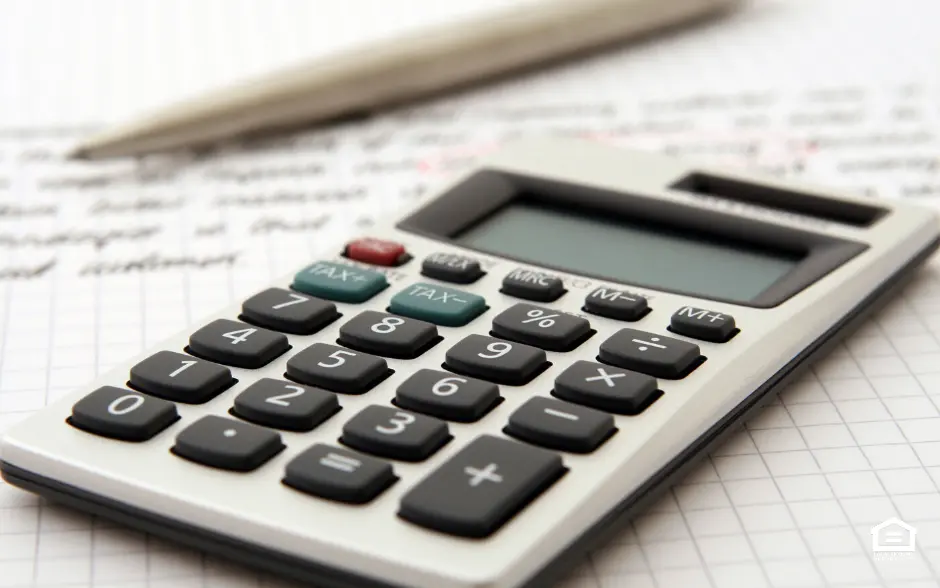How to Estimate Single-Family Rental House Expenses
One of the biggest mistakes a new single-family rental property investor can make is underestimating monthly expenses. Doing so can not only cause temporary cashflow problems but may also cause investors to lose far more money than they can afford. This is doubly tragic because there is such an easy way to prevent it. By learning how to correctly estimate your rental property expenses, you can better predict your monthly cash flow and returns and keep your investment finances healthy. 
Investing in rental real estate has a number of significant advantages over other types of investments. For example, the returns on rental real estate are highly predictable, allowing investors to be able to predict cash flows and returns on each property well before they buy it. However, to invest with that level of certainty, you need to be sure that you are accurately estimating your rental property’s monthly expenses.
Calculating Cash Flow
Calculating a property’s cash flow consists of far more than simply deducting your mortgage payment from your expected rental rate. Whether the expense occurs every month or not, your monthly rental expense number should include several key costs. For example, all properties will require regular maintenance and repairs. While some rental homes may go months or even years between repairs when they do occur they can sometimes be very expensive.
This is why you should budget a certain amount for property maintenance every month. And don’t forget about the costs of preparing the house for new tenants and regular improvements. Paint, carpet, fixtures, and appliances will all need to be updated and replaced over time. Setting aside a certain amount in your budget (1.5 times the monthly rent annually is a good number to aim for) for these items long before that day comes can ensure that you have the money you need when you need it.
Annual Expenses
Including annual expenses into your monthly calculations is also important. For example, payments for property insurance and property taxes may not be made every month, but you should still include them in your monthly expenses. If you pay items like these annually, you can figure out the monthly amount by simply dividing by 12. The one thing you definitely want to avoid is forgetting to include these expenses in your budget.
Unexpected Vacancies
Another monthly expense, and one that is often overlooked by new investors, is unexpected vacancies. Although it is not a monthly bill you will pay, your vacancy rate will still have a real effect on your property cash flows. Vacancy rates vary from place to place and even among property types, so you need to be sure to calculate a rate that is specific to your individual property.
After you have done so, it is important to include it in your monthly expense calculations. Most single-family rental property investors do this by expressing their vacancy rate as a percentage of the rent.
Property Management Costs
Adding property management costs to your monthly expenses may also be done this way. Whether you plan to hire a property management company or try to do it yourself, you should still include property management in your monthly expenses.
Effectively managing a rental property is a real labor expense, no matter if that labor is performed by you or someone else. You can decide how much to include in your monthly expense by doing a little research to discover what property managers in your market are charging. To be certain that all of your bases are covered, it is a good idea to include new tenant placement fees in addition to the monthly percent a property manager will charge.
Additional Costs
Finally, don’t forget about the other costs related to owning and managing a single-family rental property. Over the span of your investing business, you will likely need to pay for things like travel to and from properties, accounting and bookkeeping services, eviction filing fees, court and attorney fees, tax preparation, and so on.
Again, while you may not incur these and other miscellaneous costs on a monthly basis, it is important to include them in your monthly budget anyway. Failing to do so could have serious consequences for your future profitability. While gathering all of the information you’ll need to accurately calculate your property’s monthly expenses might take a while, in the end, it will be worth it. You will not only be confident that you are making wise investing decisions, but also that you are prepared for every eventuality that owning rental properties may send your way.
For assistance on estimating your single-family rental property's expenses, contact your local Real Property management office today.
We are pledged to the letter and spirit of U.S. policy for the achievement of equal housing opportunity throughout the Nation. See Equal Housing Opportunity Statement for more information.
Get the Neighborly App
In addition to Real Property Management's expert skills in managing your rental property, you can utilize Neighborly's other brands to maintain and enhance your home. Use the Neighborly App to get connected to local home service professionals. Download and receive offers only available on the App.
Depending on current health and safety regulations in your area, some of the services mentioned in this post may not be available. Neighborly service providers will follow the latest health and safety guidelines provided by the local and state governments. Please check with your local Neighborly service provider for details at the time you need service(s).






